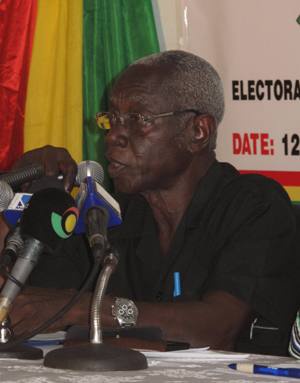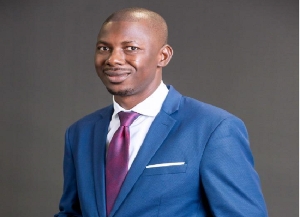Regional News of Tuesday, 22 July 2014
Source: GNA
EC hosts conference on biometric technology
The Association of African Election Authorities (AAEA) on Monday started a three-day conference on the application and sustainability of biometric technology in election management in Africa.
The Electoral Commission (EC) of Ghana is hosting the conference which is being attended by representatives of electoral management bodies and practitioners from Ghana, Kenya, Senegal, Togo, Nigeria, Cameroon, Mali, Sierra Leone and South Africa.
The conference will enable participants to share experiences on challenges and successes of their biometric election processes in Africa and learn lessons that would help them forge ahead and improve upon the processes.
The European Union (EU) is providing funds towards the conference as part of the ongoing 11.5 million Euros EU programme to support Ghanaian electoral cycle 2010-2016. Dr Kwadwo Afari-Gyan, Chairman of the EC, said the conference would be focusing on the use of technology in election administration, since the introduction of technology into elections was becoming increasingly popular in Africa.
Dr Afari-Gyan, who is also the Executive Secretary of AAEA, explained that technology was being used in election administration not as an end in itself, but for several purposes like solving problems of efficiency, credibility, acceptance of results and managing large-scale data such as voter registration data, production of ballots and logistical planning.
He said technology was also being used to compile election results, transmit election results, and provide stakeholders with copies of data or details of results in a convenient as well as make information, data and results available on the websites to interested persons.
Dr Afari-Gyan, however, said as useful as technology could be to election administration, there was no doubt that the use of biometric technology came with risk right from the tender process, but in particular risks associated with maintenance and support in the field, storage, preservation, and security of data and the sustainability of the entire system.
Such risks need to be mitigated by competent professionals at the very onset on the introduction of technology, he said. He said the adoption of technology raised not only technical issues but others like operational and legal issues relating to the rights of the voter.
“It is also a moot question as to whether technology should entirely replace the human factor in elections, thereby, precluding scrutiny by election officials, party agents, observers, and the media”. This workshop offers us the opportunity to collectively think about such complex issues associated with the introduction of technology into election administration…”
Mr Claude Maerten, Head of EU delegation in Ghana, said the EU attached high importance to the development and consolidation of democracy and the rule of law, respect of human rights and fundamental freedoms worldwide. He said this was why it was supporting democratic processes that also fostered human dignity and better developmental outcomes for individual citizens.
He said through substantial support for elections in many countries attempting democratic transitions over the past several decades, the international donor community had helped improve numerous electoral processes.
Mr Maerten said biometric voter registration was an area in which the influence of technologies applications had grown the most and that the number of Africa election management bodies that had used biometric technology provided a good opportunity to get important lessons learned on its utilisation and sustainability throughout the electoral cycle.
He, therefore, urged the actors involved in the processes related to the use of biometric technology in elections to exchange hands-on knowledge that they had acquired to improve upon the system in their respective countries.











